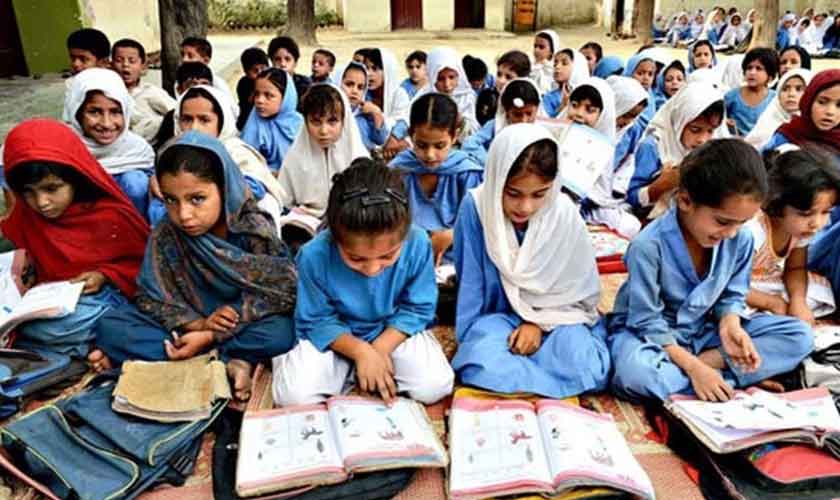Disclaimer: Website Under Maintenance: Our website is currently under maintenance. We apologize for any inconveniences.

As general elections approach, a group of civil society organisations is demanding the prioritisation of education in manifestoes of all political parties.
The demands outlined by the Vote for Safe Education consortium are a clarion call for a seismic shift, placing education at the forefront of the national agenda. The agenda has been developed following extensive consultations with stakeholders, including marginalised groups across the country.
The demands are both specific and sweeping. Some of these address the immediate needs of the education system while others lay down a comprehensive blueprint for the future. At the heart of these demands is the imperative to bring the out-of-school, displaced and disabled children into the universal education fold.
The call for inclusivity demands tangible action to uplift marginalised groups, including girls, transgender persons, religious minorities and children with disabilities.
The alliance is demanding 15 percent of the BISP Taleemi Waazaifa for minorities, children with disabilities and transgender individuals. It is also calling for allocation of 20 percent of Bait-ul-Mal funds for the education of underserved children through conditional cash transfers.
The alliance is asking that 15 percent of donor assistance be diverted to girls' education and another 15 percent to rapid restart of education in disaster-affected areas. This demand is based on the need to avoid prolonged disruptions to education.
Some of the demands address the structural issues plaguing the education system. There is a call for an increase in development budget allocation and link it to the needs of individual districts.
Empowering local government and school management committees is seen as a crucial step in ensuring the efficient utilisation of resources and fostering a sense of ownership at the grassroots level.
The demands also highlight the need to Build Back Better, emphasising a phased approach to the reconstruction of damaged schools. The timeline spans short-term, medium-term and long-term goals. It is proposed that the school managements be integrated into disaster management plans.
There is a call for a commitment to mitigate the learning losses, especially in the wake of the pandemic and natural disasters. It is predicated on the understanding that education is not a luxury but a fundamental right. It is proposed that the future governments commit to a nationally owned plan for remedial learning within six months of coming into power.
The Vote for Safe Education Alliance is pushing for a phased implementation of the right to education as a justiciable fundamental human right. It is also demanding synchronisation of SDG-4 targets with local indicators.
The backbone of these demands lies in the budgetary allocations. The civil society organisations are demanding a doubling of the current allocation, from 2 percent to 4 percent of the GDP. They are also demanding assurance from the provincial governments for continued allocation of 15 percent to 20 percent of their resources for education. This financial commitment is being advocated as non-negotiable.
Establishing inclusive and transparent systems for monitoring and evaluating education policy implementation and spending aligns with the principles of transparency and accountability.
These demands delve into the realm of creating a safe educational environment. There is insistence on zero tolerance for sexual harassment in educational institutions and the establishment of student unions and harassment committees.
In the quest for enhanced education delivery, the demands are pragmatic and forward-looking. They advocate for relevant and regular teacher training programmes, phased implementation of the one-grade-one-teacher approach, and a significant reduction in the student-to-teacher ratio. There is an emphasis on reviewing and revising the national curriculum to promote critical thinking and problem-solving skills.
The agenda recognises the importance of vocational and technical training programmes, starting as early as Grade 3, to prepare students for a competitive and rapidly changing job market. This approach to education reflects an understanding that a skilled workforce is key to the country's economic growth and global competitiveness.
The demands extend into the political and parliamentary realms, calling for institutionalised and inclusive platforms for open dialogues at district, provincial and national levels. The emphasis on diverse, inclusive, and accessible assessment/ examination processes aligns with the broader goal of creating an education system that caters to the needs of all children.
Data-driven decision-making, gender and disability-segregated data and credible dashboards are highlighted as essential tools for holding political parties accountable for their pledges. This demand is a reminder that promises made during election campaigns should be linked to measurable outcomes.
Pakistan is at a crossroads. These demands from the Vote for Safe Education Alliance provide a roadmap for a more inclusive, equitable and forward-thinking education system. This is a call to action, a demand for political will and commitment to prioritise the future of the out-of-school children. The general elections are an opportunity to reshape the destiny of the nation through the transformative power of education.
The writer is the executive director of the Society for Access to Quality Education (SAQE), the national coordinator for Pakistan Coalition for Education and a Malala Fund Education champion. She can be reached at [email protected] & on Twitter @zehra2576
Source: https://www.thenews.com.pk/tns/detail/1134756-seeking-pledges-for-education